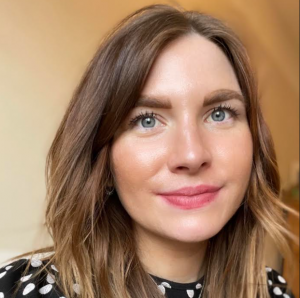First 24 hours with a newborn: What to expect once you give birth
You've waited for this moment for months - here's how the next few days might look for you
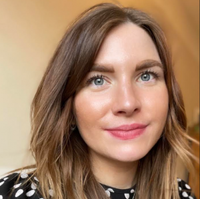
Stephanie Lowe
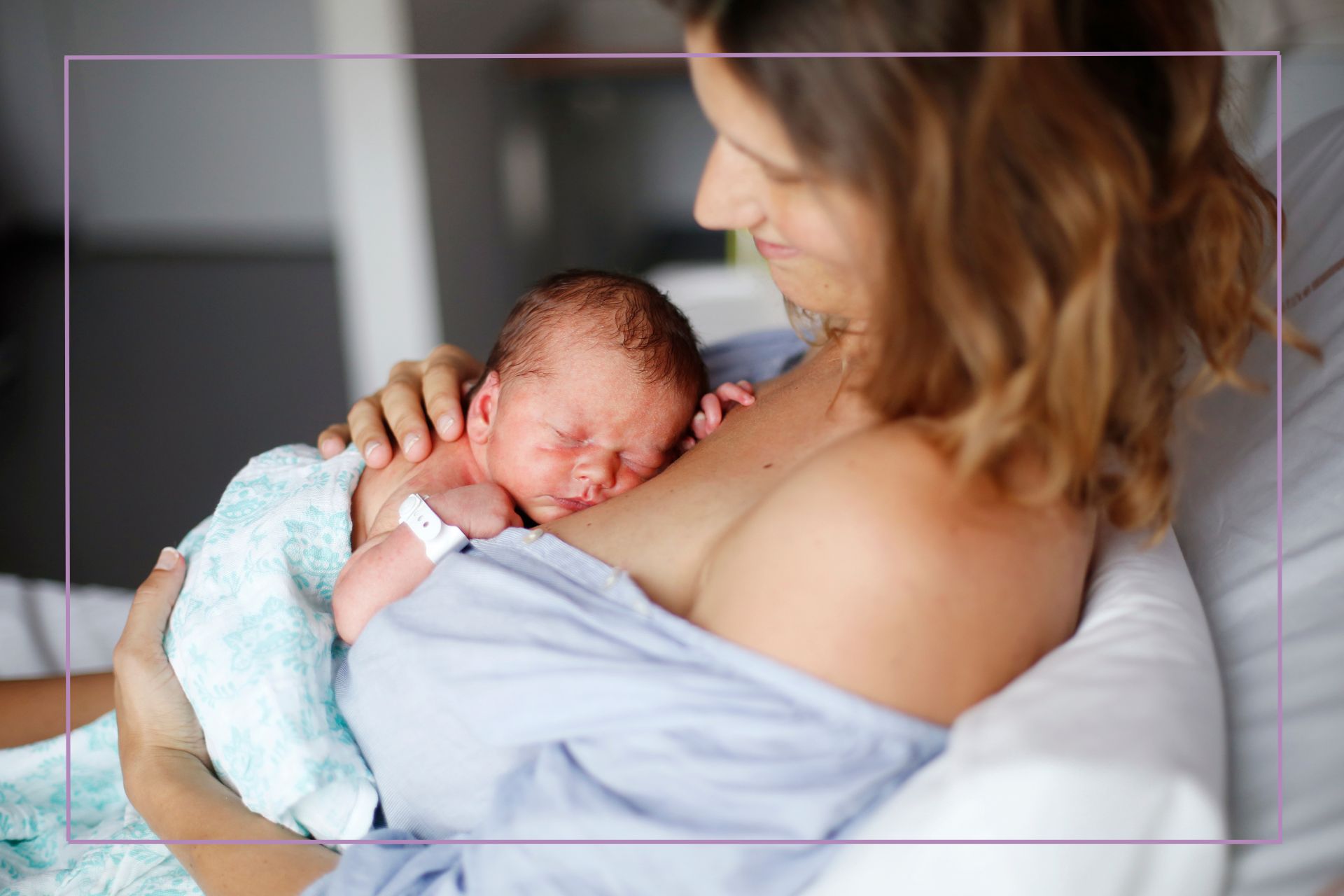
If you're pregnant with your first child then you might be wondering what to expect on the other side of labour - what will happen to you, your body, and your baby 24 hours after giving birth
Some women feel they know their babies intimately straightaway after birth. After all, you've carried this little person inside you for the last nine months, feeling them kick and roll around, and you've even watched their heartbeat on a screen. But at the same time, those first hours after birth with your new baby are a step into the unknown - for so many reasons.
Family editor at GoodToKnow, Stephanie Lowe says; "It was a real whirlwind, I didn't have that rush of familiarity or love that everyone speaks of. I think having an emergency c-section slowed that all down for me so my first 24 hours weren't as I expected. But then, like a birthing plan, I threw it to the wind. I planned to come out of the hospital with a healthy baby."
There's lots to learn after birth, about your body and this new role of 'mummy' you've literally birthed, and over the next few weeks after birth you and your little one will be learning together. But knowing what to expect in the hours immediately after birth will help prepare you.
First 24 hours with a newborn
No matter how you birth, whether on a labour ward, in a bed, or a birthing pool, the first 24 hours are a mystery for many new mums. From how your baby will be feeling to those all-important questions such as, when will you be able to go home? And how can you bond with your newborn? There's a lot to think about when you bring new life into the world. Here's our guide to helping make those first 24 hours a little less overwhelming.
This differs from woman to woman depending on the type of birth you have had. 'After a vaginal birth, you will most likely be up to the toilet and to shower within a few hours of birth,' says Sharon Salvage, midwife and founder of hypnobirthing and pregnancy yoga company, Glow Mummy 'If you have experienced a caesarian birth, you will most likely remain in bed until the following day whilst your body heals following abdominal surgery.' Your midwife will monitor you closely for signs of excessive bleeding or infection and you may have a small catheter (plastic tube) to empty the bladder on the day of the birth.
'You may feel exhilarated and elated at the arrival of your baby and the adrenalin effect may prevent you from sleeping a great deal in the first 24 hours,' says Sharon. 'Other women, feel very exhausted, emotional, and overwhelmed following the birth and welcome sleep at this point.' Most new mothers will experience some vaginal bleeding (called lochia) for the first few weeks after their baby is born, most heavily on the day of birth and reducing over the coming weeks.
Parenting advice, hot topics, best buys and family finance tips delivered straight to your inbox.
'If you have had a vaginal birth, your perineum (the tissue between your vagina and back passage) may feel uncomfortable due to the opening and stretching during the birth,' says Sharon. 'If you have stitches, then keeping the area clean to prevent infection is very important. Intermittently cooling the area with a chilled sanitary pad and perhaps a little witch hazel or tea tree sprayed onto the pad will soothe and calm the area.' The caesarian birth incision site will be covered by a dressing for the first 24 hours. You may require pain relief if you feel uncomfortable after your baby’s birth which midwives will provide.
As soon as you feel able, have a warm bath to soothe any perineal discomfort and to keep caesarian stitches clean. Try specialist bath soaks, rather than heavily perfumed products: My Expert Midwife bath $ Soak for Bits$ contains arnica and Epsom Salts for aching muscles, for example, as well as tee tree, bergamot, and calendula essential oils to reduce swelling and postnatal pain. Always pat your perineum and stitches dry gently rather than rubbing them.
'Keeping well hydrated with fluids and eating a balanced diet with fibre and protein will help with healing the postnatal body and prevent constipation,' says Sharon. Having your baby skin-to-skin as soon as possible after birth is very important to initiate the bonding and maternal instinct in mothers, and helps produce lots of lovely oxytocin (the love hormone). 'It also calms mothers and the baby by being together following birth and commences the important steps towards stimulating production of colostrum,' says Sharon.'This is the first form of milk produced by the mammary glands in the breast and importantly contains high volumes of antibodies to protect the newborn against infections and helps to kick start their immune system.'
Midwives will assist you in latching your baby onto the breast as support with this in the early days can prevent problems further down the line. Nipple cream may also be useful at the point if the nipple does feel tender.
What will your baby be feeling?
Labour and birth is a shock to the system, and not just for you! For your baby, the birth has been exhausting, and they are now in an unfamiliar world.
The sense of space around them after birth and the feeling of air on the skin is new and strange. While they were inside you, your baby's oxygen supply came through the placenta directly into the bloodstream.
The moment they emerge into the air after birth, the change in temperature gives the lungs a signal to start working, and they will take their first gasp of air, usually accompanied by the first cry. As soon as your baby starts to breathe, the placenta stops working.
The umbilical cord, which links your baby to the placenta, needs to be cut so your newborn can begin life as a separate being from you. But it has already stopped functioning by this stage, so your baby won't notice that it has been cut. The cord has no nerves, so neither of you will be able to feel the snip.
'They may look blueish in colour but will quickly become pink once they take their first breaths though the extremities like hands and feet may take a little longer,' says Sharon. 'They may be covered in vernix which is a whitish substance on their skin, designed to protect a baby’s skin in the womb and will absorb into their skin after birth.' Babies have the scent of vernix and amniotic fluid after birth and this gives them a familiarity with life in the womb. 'A baby being skin-to-skin is very important, it helps them regulate their temperature, breathing, and heart rate after birth by helping them to feel safe and secure. It is also the vital initiation in the breastfeeding pathway,' says Sharon.
The Golden Hour after birth is a time when babies are very alert and responsive so feeding at this time is ideal. 'After the first feed, the baby may sleep for 6-8 hours and would be normal to feed perhaps only 3-4 times in the first 24 hours though some babies will feed a lot more than this,' says Sharon. 'Babies generally can see objects and colours from birth but only from a distance of around 8-15 inches which is approximately from the mother's breast to her face.'
When can you go home after having a baby?
'Some women who have had a straightforward birth may decide to go home later on the same day (particularly if this is not your first baby) or to stay in hospital for a night or two to rest and havesupport with breastfeeding,' says Sharon. 'After a caesarian birth, some women decide to go home the day after the baby’s birth, particularly if it was planned and without complications but most women will stay in hospital for a few days.' You will need a lot of help and support when you go home particularly in the event of a caesarian where a period of 6 weeks is expected before you are able to return to normal activities. 'Midwives will visit all women at home generally following discharge from hospital and up until 2-4 weeks after baby’s birth as needed,' says Sharon. 'Some women choose to give birth at home instead of hospital particularly if your pregnancy has been straightforward in which case, midwives will be with you for the birth and will return later in the day or the following day to check you and baby are well.'
What is the Apgar score and how is it done?
'The APGAR score was named after its founder in 1952 by Virginia Apgar who was an anaesthetist. It was originally designed to assess the effects of anaesthesia on babies at birth,' says Sharon. Apgar stands for Appearance, Pulse, Grimace, Activity, and Respiration.
Immediately after birth, the midwife or doctor will do a test to find out your baby's Apgar score. This is a quick and painless way of assessing your baby's wellbeing. It looks at five things: skin colour (appearance), heart rate (pulse), reflex response (grimace response), muscle tone (activity) and breathing (respiration). The test is done a minute after birth and again at five minutes. The 1-minute score is to assess how well the baby tolerated the birthing process, whilst the 5-minute score tells the health care provider how well the baby is doing outside the mother's womb.
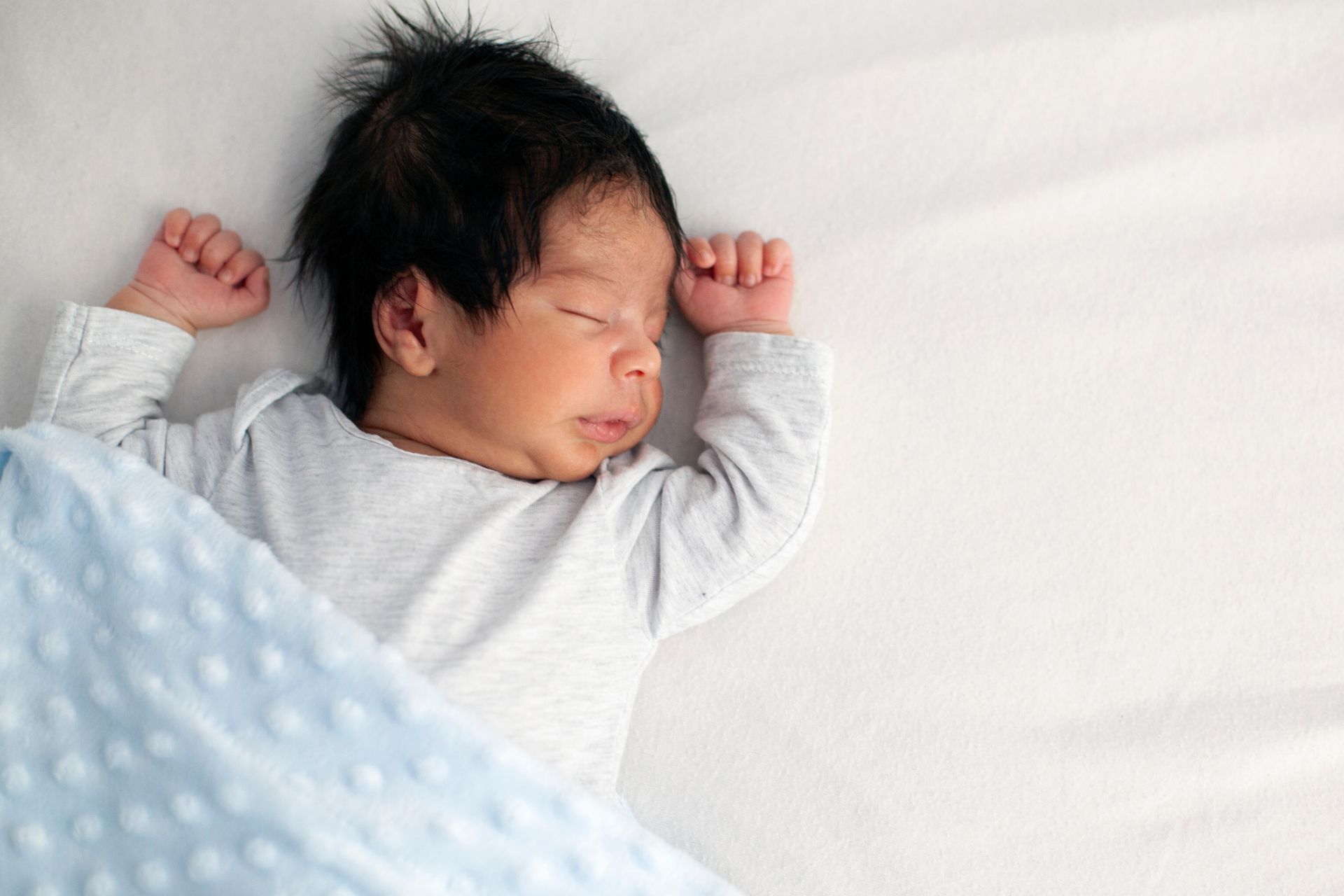
Each of the five areas is given a mark between one and two, and the scores are then added together to give an overall total. The maximum mark is 10, and babies who score between eight and 10 are fine, while those with a result of between five and seven may need a little help, such as a good rub to warm them up or a few puffs of oxygen to help their breathing. Newborns who score below five are more poorly and may need to be taken to the special care baby unit for extra help.
You'll also be asked if you're happy for your little one to be given a dose of vitamin K. In very rare cases, newborns don't have enough of this vitamin, which means their blood doesn't clot properly. So all babies are offered an injection (or, occasionally, a dose given by mouth) at birth.
How to bond with your newborn
The best way to bond with your baby and make them feel loved, secure and contented, is to spend lots of time touching and cuddling them.
Never be afraid that cuddling your baby too much will 'spoil' them. All creatures, particularly mammals, use physical contact to help their young get used to life outside the womb, and a young animal wouldn't thrive if it were separated from its mother in the first days of life.
Babies crave touch, and you'll notice immediately that picking your little one up calms them if they're crying or unsettled. Sometimes they'll be unhappy for no other reason than they want to be held.
They can't talk, so being physically close is the only way they can express their sociable nature. 'The oxytocin you produce will help you fall in love with your baby and to enable your body to settle back into its pre-pregnancy state during this fourth trimester,' says Sharon. 'Responding to your baby’s cry helps bonding and to make a baby feel safe and ideally room sharing for the first 6 months of baby’s life so you recognise their feeding cues and can respond appropriately to their needs,' says Sharon.
Practical advice:
- Cuddle: Holding your baby close or in a baby sling can develop a loving closeness.
- Sing: Your newborn may enjoy the rhythm of music and it might help you feel calmer too!
- Respond to their crying: 'Responding to your baby’s cry helps bonding and to make a baby feel safe and ideally room sharing for the first 6 months of baby’s life so you recognise their feeding cues and can respond appropriately to their needs,' says Sharon.
- Talk: As much as you can, use soothing tones. This will help your newborn recognise your voice and learn language later.
- Eye contact: When talking and cuddling, look into your baby's eyes and make facial expressions. This will help them to make a connection between words and feelings.
How often do newborns feed in the first 24 hours?
In the first hours of your baby's life, if not immediately after the birth, you'll be encouraged to offer your baby a feed. Your midwife will ask you if you want to breastfeed or bottle feed.
For the first 24 hours your breasts will produce colostrum to feed your baby. Colostrum is a rich, fatty food, full of antibodies that protect your new baby. If breastfeeding, you'll be offered help to get your baby latched on. If you're going to bottle feed, the hospital may provide bottles of formula milk.
Don't worry if your little one doesn't seem interested, to begin with: they'll be tired from the birth and may just want to sleep. You'll have plenty of opportunity to keep trying over the next day or so. While some babies take to breastfeeding immediately, others need a bit of time and practice. It's also important to remember that your baby's stomach is currently the size of a small marble, so they will get full easily and may need a break before trying again.
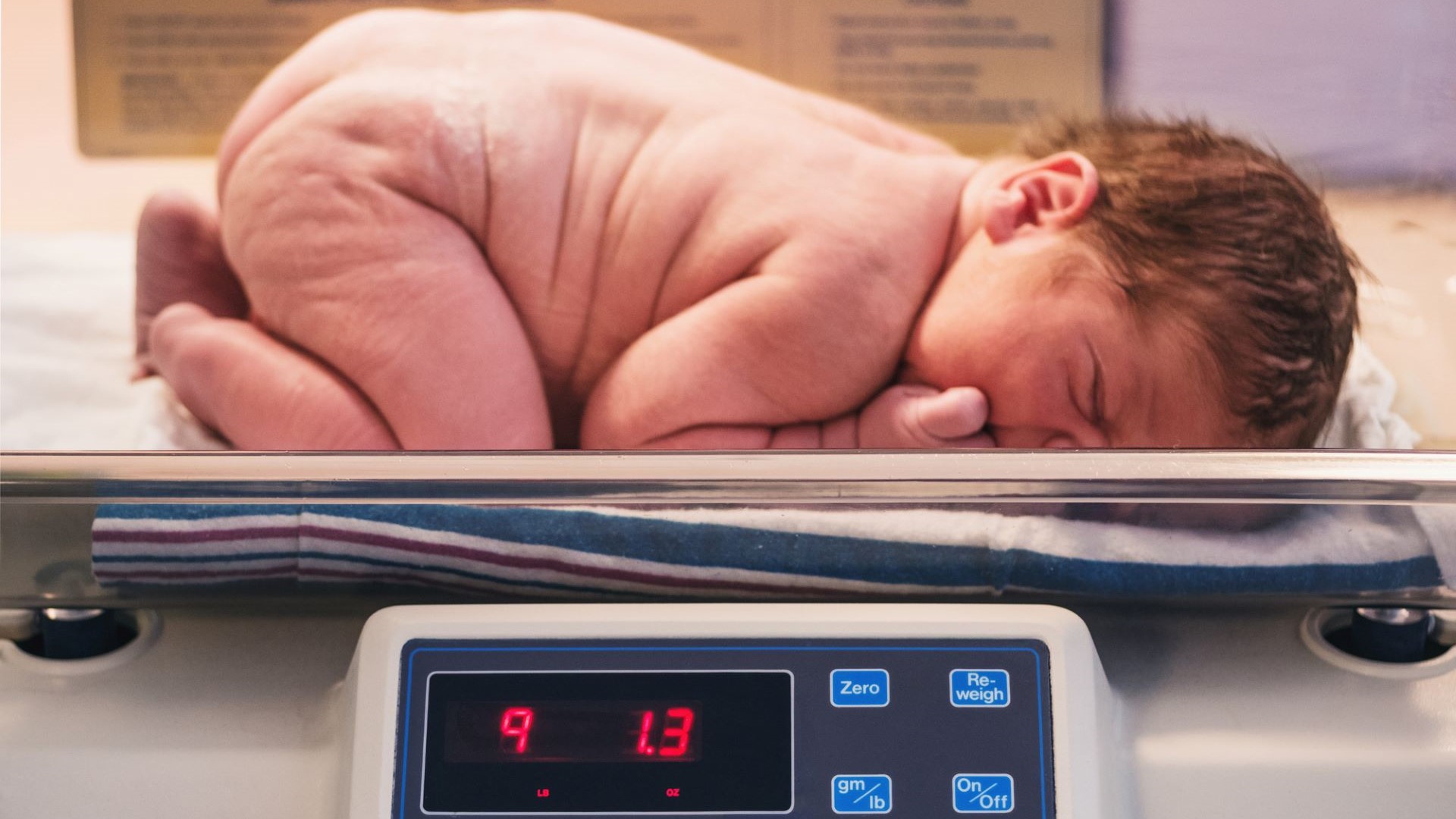
Even if you've successfully breastfed a baby before, it can be tricky getting a floppy, tiny newborn positioned correctly, and a bit of help from a midwife or your partner can make all the difference, so don't be afraid to ask.
Midwives see breasts every day, and help thousands of women feed their babies, so they don't think twice about giving your nipple a squeeze to get some milk out or pushing and pulling your breast to get it into your baby's mouth. This can be a bit disconcerting, but when you feed a baby your breasts are no longer the private, hidden parts of your body they once were! They become much more functional and public, so you may as well get used to it early on!
You may be encouraged to try a bottle if your baby doesn't take to breastfeeding in the first couple of days. Hospitals have breast pumps and you can ask to be shown how to use one to express your own milk for your baby and persevere with breastfeeding if you wish to.
Top tips:
- Use the first hour after your baby is born to try and breastfeed. They are more likely to be awake and take the breast.
- Spend as much time as possible in skin-to-skin contact as this can encourage your baby to breastfeed more.
- Don't be afraid to wake your sleeping newborn. Every few hours put your baby to breast. They will gradually become alert and breastfeed better. Stay persistent!
How much should my baby sleep in the first 24 hours?
'Babies might sleep for at least 18 hours of the first 24 hours and perhaps longer,' says Sharon. 'They will sleep for many more hours than they are awake at this time.'
After the initial 24 hours, babies will sleep for 30 minutes to 3-4 hour bursts waking usually at this time to feed as their stomachs are small and they digest milk quite rapidly. 'At this stage, they will usually sleep for 14-17 hours minimum over 24 hours,' says Sharon.
Your baby may make snuffling noises but don't worry, this is normal! Their airways are just getting used to the atmosphere and their new environment. Another common habit for newborns is periodic breathing; they may breathe quickly, pause for a few seconds, and then start breathing again. This is also very normal! But contact your midwife if you are concerned about any of this or you feel that your baby is excessively sleeping and reluctant to feed. They're used to getting calls, so don't be afraid to ask questions!
When to bathe a newborn baby
The nurses at the hospital should give your baby a little clean once you've given birth, so you don't need to worry about giving them a proper bath usually until their umbilical cord drops off.
Once you've got your newborn home, you may just want to top and tail them initially.
'Newborns are learning to stabilise their blood sugars, regulate their own body temperatures, develop bonding and good feeding attachments,' says Sharon. 'Bathing them may cause them to cry and release stress hormones and will wash the vernix from their skin which is there for protection and to keep their skin soft.'
Top and tailing is when you clean around your baby's face and neck and then around their genitals and bottom with warm water and cotton pads or a flannel. Make sure you dry your baby carefully but thoroughly, being careful to dry in between any folds of skin. You should avoid using soaps or lotions on your baby's skin until they are at least a month old.
Top tips from the Mayo Clinc:
- Get prepared first and make sure everything within arms reach. This can be a bit of a juggling-act!
- Keep one hand on your baby at all times, using your non-dominant hand to support their head and neck.
- Use a flat surface, such as the kitchen sink, changing table or bed, and use a basin or sink to hold warm (but not hot) water.
- Leave a majority of your baby wrapped in a towel and expose only the part that you’re washing at a given time.
The 24-hour check
Within the first day or so, your baby will have a 24-hour check. If you leave hospital quickly, your GP will come to your home to do this. They'll also ask you questions about how your baby is feeding, how alert they are, and about their general wellbeing. Your baby will need to be undressed for some of the examination.
During the examination, the health professional will also:
- Look into your baby's eyes with a special torch to check how their eyes look and move
- Listen to your baby's heart to check their heart sounds
- Examine their hips to check the joints
- Examine baby boys to see if their testicles have descended into the scrotum
The test is a thorough top-to-toe check, and this is what they're looking for:
Weight, length and head circumference: These measurements will give you a starting point for plotting your baby's growth over the next months and years.
Eyes, ears and mouth: The doctor will check for any obvious hearing or sight problems, and for things like cleft palate or tongue-tie (where the tissue joining the tongue to the floor of the mouth restricts movement of the tongue).
Heart and lungs: The doctor will observe your baby, feeling their pulses, and listening to their heart with a stethoscope. The doctor will listen to your baby's heartbeat to check for irregularity or murmurs, and to his breathing.
Spine: Your baby's spine will be checked for straightness, and their legs are given a wiggle to rule out clicky hips (where the hip joint is too loose and the thigh bone dislocates itself).
Hands and feet: These will be looked over to check for webbing and talipes (club foot).
Genitals: Baby boys will be examined to see if both testicles have descended and that the hole where wee comes out is at the end, not round the side. The doctor will also check your baby's bottom and ask if he's done a poo yet.
Your newborn may also have a separate hearing check, using a small machine that tests how an echo is bounced off the inside of the ear.
You will get the results of this test straight away and if the doctor feels your baby needs to have more tests, they will discuss this with you at the time. The results will then be recorded in the baby's personal child health record (red book). Make sure you keep this safe as you'll need to have it with you at any future medical appointments.
Within the first week, your midwife will give your baby a heel prick test, which involves taking a small amount of blood from his heel using a tiny needle. The blood will then be tested for enzyme or thyroid deficiencies and, in some areas, for cystic fibrosis.
Your midwife will visit you at home for the first 10 days after the birth, so this is the time to raise any concerns you may have about either your health or your baby's.
Find out more about baby weight chart, what to expect when breastfeeding, and how to increase milk supply as well as delayed bathing. We have all the insight from the best baby and pregnancy experts out there
Rose Goodman joined Future Publishing in 2020 and writes across Goodto.com, Woman & Home, Woman, Chat and Woman’s Own magazines. Prior to pursuing her career as a writer, Rose obtained a degree in psychology and went on to work in adult mental health for five years at Addenbrooke’s Hospital, Cambridge, specialising in eating disorders. She is fully trained in first aid, medical emergency response and motivational interviewing – a directive, patient-style counselling approach to address ambivalence in recovery. She graduated with a MA in creative writing from the University of Brighton in 2017. In her spare time she enjoys writing poetry and attending literary events, and offers weekly support to those living with homelessness. Rose has a passion for raising awareness around mental illness and the importance of prioritising our wellbeing.
- Stephanie LoweFamily Editor
